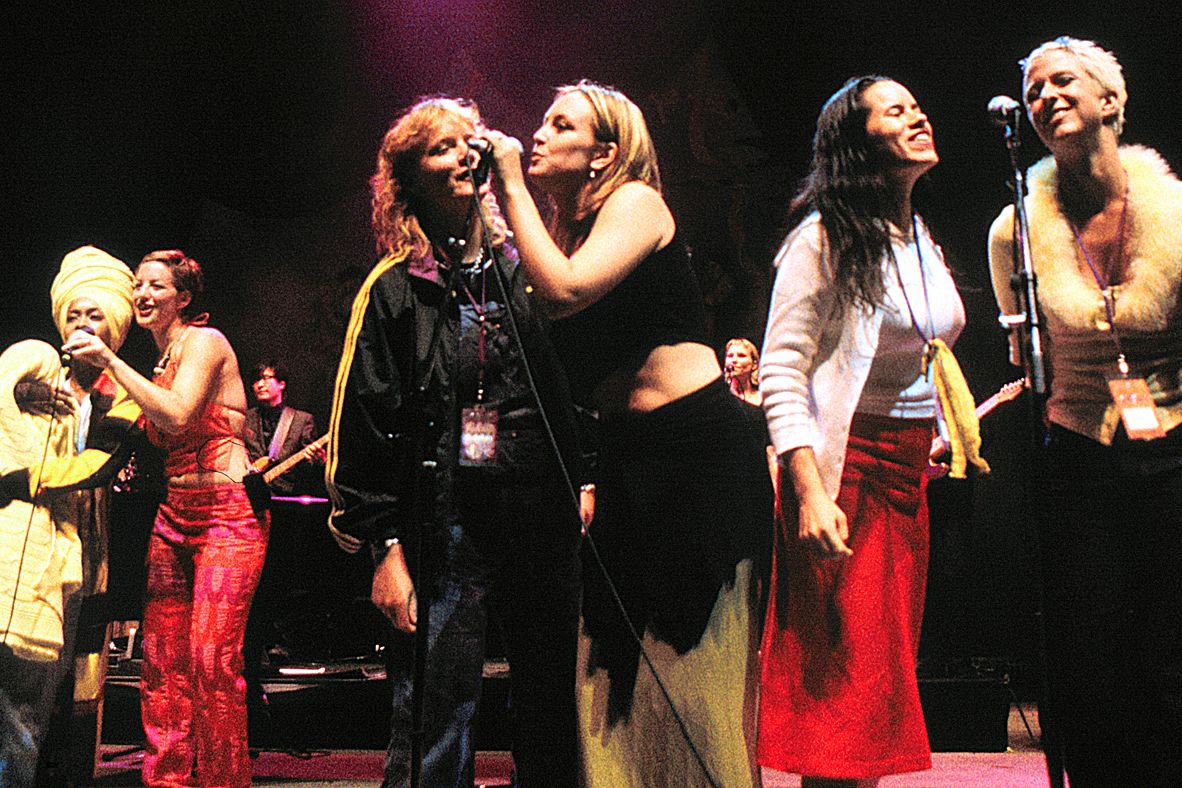Herstory 6: Sarah McLachlan Revolutionizes Music Festivals
Sarah McLachlan created Lilith Fair in 1997
The Canadian singer-songwriter had new music to promote and another tour felt like the natural next step for her career. She wasn't particularly interested in touring so her team suggested that she tour with other acts to lift the burdens of headlining. One thing led to another and she had conceptualized Lilith Fair - a touring festival with over 30 rotating acts on the bill. Having toured with other female acts already, she was set on having an all-female line up.
The name Lilith Fair actually comes from the biblical character, Lilith. She was Adam's first wife and is often described as a sexual demon and baby-stealer. Sarah McLachlan dubbed her the first feminist.
The Industry Truly Thought Womxn were Bad for Business
Even in 2018, there are industry thought leaders that believe putting womxn on the radio will lead to lower ratings, and many music festivals have come under fire for the lack of gender diversity on the bill.
These misconceptions are nothing new - they have a long history in music and were very apparent in the 90's. The different between 2018 and 1997, was that there wasn't much data to challenge these business practices. When the Lilith Fair team was planning for the tour, they received push-back from a number of promoters. These promoters didn't believe that an all-female lineup could sell out stadiums like other festivals.
Photo Credit: Tim Mosenfelder/ImageDirect
Lilith Fair's Success was Legendary
The team moved forward even though many industry folks were skeptical. In the end, the first Lilith Fair in 1997 became the highest grossing music festival of that year, bringing in around $16 million. After that, justifying the lack of womxn in music became harder. Lilith Fair provided hard evidence that womxn were overlooked as musical talent as well as consumers of music and live entertainment.
It also created an environment that celebrated female collaboration. The media is quick to highlight female competition and conflict, so it was refreshing to see so many womxn working together and creating something together. Show goers also praised Lilith Fair for providing an experience that made them feel confident and safe. Sexual harassment during live entertainment is a problem that often goes unnoticed. While there were men attending shows, the sheer number of womxn at Lilith Fair changed crowd behavior noticeably. Many womxn look back at Lilith Fair as a safer space compared to other music festival experiences.
The Original Lilith Fair Wasn't Perfect, Though.
Lilith Fair received criticism for its homogeneous lineup. The festival was branded as a "celebration of women in music" but it came across as a festival celebrating white singer-songwriters. The Lilith Fairs in 1998, 1999 and its 2010 comeback saw more diversity in its performers and their genres.
The Legacy of Lilith Fair
Most of the money from Lilith Fair was donated to various female-focused charities. The money was also used to create the Sarah McLachlan School of Music - it is located in Vancouver and helps the next generation of musicians explore their passions.
Lilith Fair provided hard evidence that exposed a major blindspot within the music industry. It's been more than 20 years since the first Lilith Fair and we've still got a long way to go. That being said, we wouldn't even have a conversation about it if it wasn't for Sarah McLachlan's bold move to celebrate the female creativity around her.
Thanks for reading! This blog series is brought to you by Solidarity in Sound, an educational platform for unlearning music misogyny.
For our Herstory Lessons blog series—we're retelling the stories of womxn in music that have been misheard, mislabeled, or erased completely from our history books.
If information looks incorrect, please let us know! When we're retelling stories that are left out of our history books, finding info can get tricky. We want to make sure we're portraying these stories as accurately as possible!




